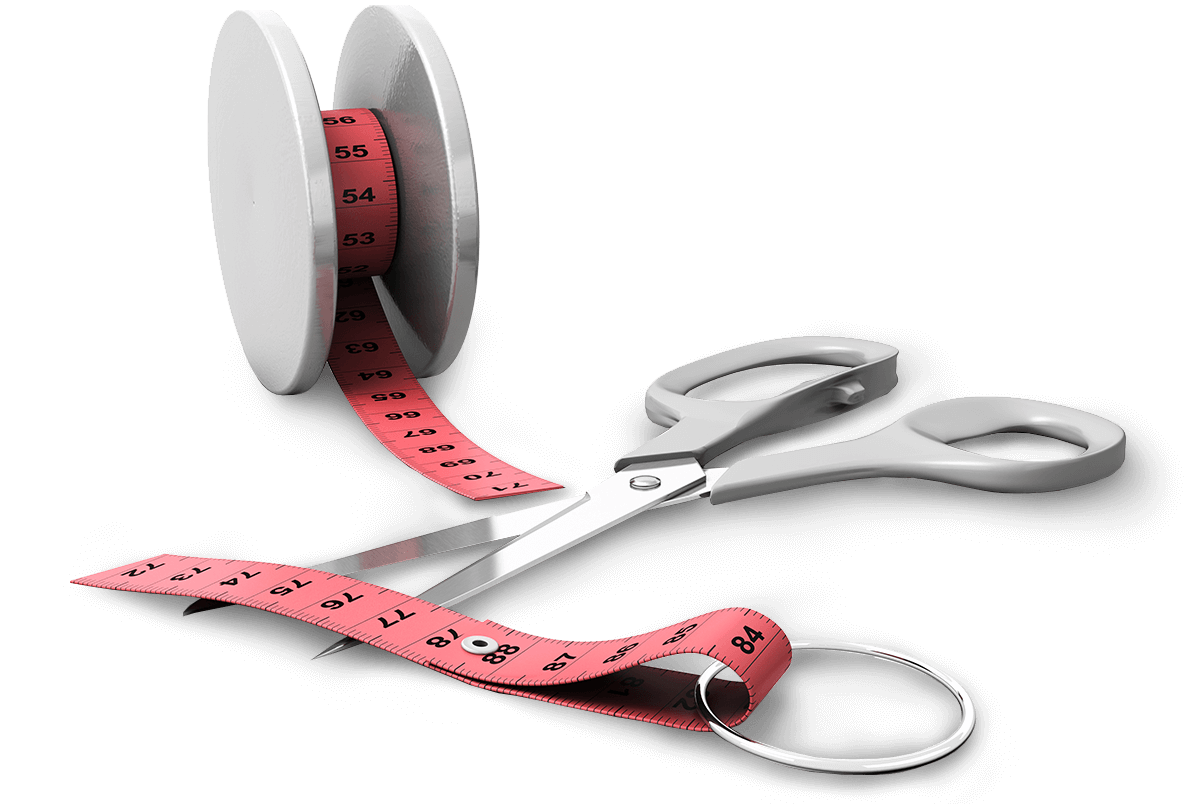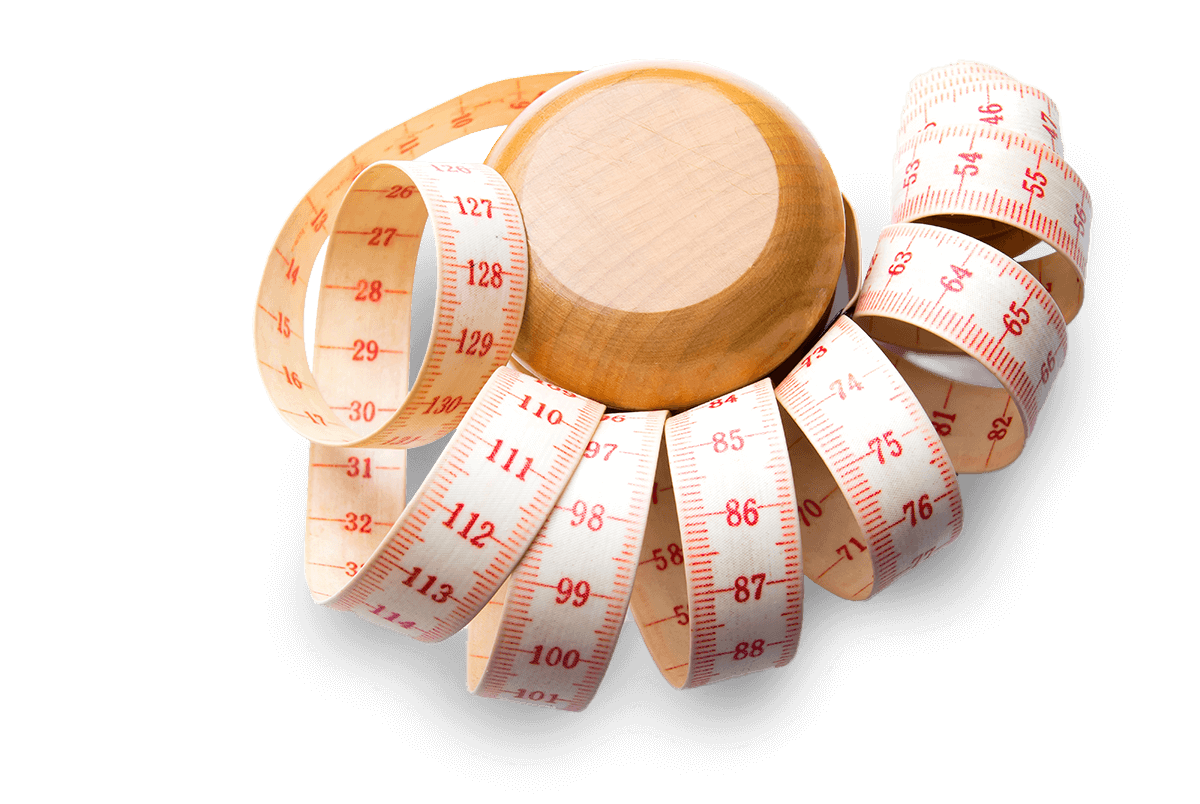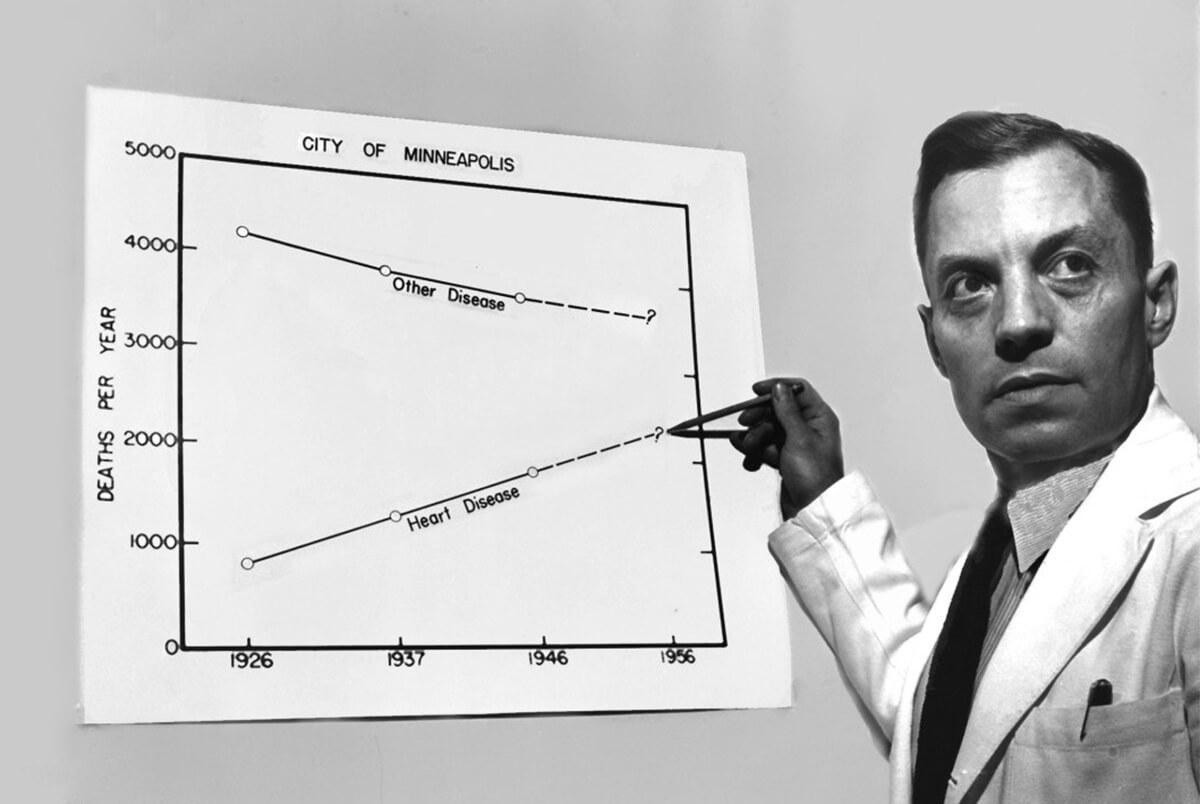The Yoyo-Effect
The undesired consequence of the conventional "diet" - an unhealthy reduced energy supply.
Everything about the Yoyo-Effect!
Who hasn't heard of it, the dreaded Yoyo-Effect? As soon as you have starved yourself down a few kilos during a shock diet and then eat normally again, the scales often show more kilos than before you started. Nutritionists call this a Yoyo-Effect. Nowadays we also refer to it as weight-cycling when the weight often goes down rapidly but then rises steeply shortly after.
About 82% of all women have tried out diets in the last two years [ABDA; Germany; infas; 3,372 respondents; 16 years and older] - but success is usually only short-term - and the famous Yoyo-Effect is triggered as that the weight when not on a diet increase as each diet is tried.
The results is a steady increase in the resting weight from year to year, combined with more and more difficulties to lose any weight at all.
The already high risk of diabetes among overweight people who experience weight cycling also rises to 80 percent, as reported by the researchers in the EPIC study [Ärzte Zeitung App, 27.11.2014].

How to effectively avoid the Yoyo-Effect!
When you change your metabolism with Metabolic Balance, you don't have to fear the Yoyo-Effect. Metabolic Balance is not a short-term diet, but a change in nutrition according to the latest scientific findings. It is a long lasting solution to successful and natural weight management.
Metabolic weight loss focuses on optimizing your body's metabolism through tailored nutrition plans and lifestyle adjustments, aiming to enhance fat burning and promote sustainable, healthy weight management.
The longevity and long lasting results of Metabolic Balance is the key difference to other diets that so many people have tried and failed with over the years. Whereas other diets are all aimed at short-term weight loss. Metabolic Balance is aimed at acheiving balance and keeping it.
Those who lose weight over the long term with the help of an optimally coordinated metabolic changeover will also benefit from an ongoing stable weight. And there is a simple medical explanation for this.

Protein stops the Yoyo Effect
The founder of Metabolic Balance, Dr. Wolf Funfack, already knew this decades ago as a result of his intensive nutritional studies: Protein stops the Yoyo Effect!
Most diets are carbohydrate- and/or calorie-reduced and nutritionally very one-sided. And this is the reason for the Yoyo Effect: With this type of diet, the body must supply itself with protein from it's own stores, i.e. it makes use of its reserves of muscle protein.
When such diets are finished, the body is set on a mission to restore the lost protein reserves to make up the deficit that has developed in the body. At the same time as this is done, fat deposits are refilled until the body has regained its 100% protein level. You experience this as a steady and often rapid weight regain after a diet which doesn't stop until you've regained all (and usually a bit more) of the weight you had lost.

The Minnesota-Experiment
As long ago as 1950, scientists were actively studying the Yoyo effect. The best explanation for the phenomenon is the Minnesota experiment by Prof. Ancel Keys. [Dullo, A.G. et al Am.J.Clin.Nutr. 1997; 65: 717-723 Poststarvation Hyperphagia and body fat overshooting in humans]
American soldiers drafted for military service were given the choice of either being on the front line in Europe or participating in a diet experiment. Thus 32 healthy, normal-weight men were isolated in a metabolism laboratory for 56 weeks. The experiment was carried out in 3 phases.

Reduce and increase calorie intake again
In the first 24 weeks the soldiers received only 50% of their actual calorie requirement with a nutrient distribution of 17% fat, 25% protein and 58% carbohydrates. During these 24 weeks the soldiers reduced 70% of their original body fat and 17% of their total protein content - and were constantly hungry and dissatisfied.
In the 2nd phase, the soldiers received 100% of their calorie requirement with the same nutrient distribution as in phase 1. The 2nd phase lasted 11 weeks and in this phase, they scientists observed that the body fat of the soldiers increased by 50%, so that they had a body fat of 80% at the end of phase 2.
The body protein of the soldiers increased in the same period however only by 5%. This meant that there was still a deficit of 12% of their own body protein.
The fat level rises, but the protein reserves are much slower.
In the third and final phase (8 weeks), the soldiers were free to choose what and how much they wanted to eat. On average, the nutrient distribution was 35% fat, 14% protein and 51% carbohydrates. The result of this phase was that the soldiers consumed 50% more calories than their body weight actually needed.
In addition, the soldiers gained a total of 174% of their original body fat at this time, i.e. 74% more body fat than at the beginning of the diet experiment. They also only regained 98% of their protein reserves which meant they had a poorer body composition than when they started.
Conclusion: Humans have a protein memory and respond to the loss of endogenous protein (their own body protein) with increased hunger until the original protein content of 100% was restored.
Happy and slim without the Yoyo Effect
Those who follow unbalanced diets such as a cabbage soup diets or juice cures do not lose fat, but usually only muscle mass. During the diet, the mood also drops dangerously low because the body is not getting what it needs. Most often as the yoyo effect sets in too, mood stays low.
The positive protein effect was also confirmed by the Europe-wide research project Diogenes (Diet, Obesity and Genes) on weight loss:
Study result - a balanced protein-rich diet prevents weight gain more effectively than diets without protein. A balanced, protein-rich diet also offers other advantages. Firstly, it counteracts muscle loss during a weight loss period and secondly, it provides excellent satiety AKA no hunger!
The Diogenes results also demonstrated that the study participants regained less weight after a the diet if they increased the protein content.

Dr. Wolf Funfack explains it like this: "We need to stop Yoyo Effect!"
With many carbohydrate-reduced and calorie-reduced diets, the body uses a great deal of protein. The reason is: there are certain organs in our body such as the brain, the reproductive organs and the red blood cells, which are dependent on the use of glucose. These cells cannot burn fat to produce energy they must have glucose. Muscle cells, on the other hand, are also able to burn fat when there are too few carbohydrates available.
The brain however can only use carbohydrates for its energy. This can also be seen from the fact that the brain is almost the only organ (apart from the reproductive organs) that can absorb glucose directly into the cell, without insulin getting involved.
It has been shown that with insulin resistance the muscle cells simply alter the insulin receptors so that they no longer absorb glucose from the blood stream. The problem is that the cells need insulin to take in the glucose from the blood stream when cell supplies are low. This is why insulin resistance has such a negative effect on the body. Blood sugar levels can rise dangerously high and also cells are starved of the fuel they need because even though it's there the glucose can't enter the cells.
This is different in the brain though, where glucose is the essential fuel. When a hypocaloric diet is followed, i.e. with few calories and few carbohydrates, the brain gets too little glucose. And so to protect the brain from losing it's vital glucose supply, the body has the ability to rebuild glucose from its own protein reserves.
This process is called gluconeogenesis. In this process, the body's own protein is converted into glucose through biochemical processes. The loss of the body's own protein however leads to increased appetite, as the body is constantly trying to restore its reserves as quickly as possible.

Avoid the Yoyo Effect with Metabolic Balance
During the conversion of metabolism with Metabolic Balance, each individual nutrition plan ensures that all three food components - proteins, fats and carbohydrates - are present in the right quantities and in a balanced ratio so that the body does not have to burn its own protein to produce glucose. This means that practically no Yoyo Effect can occur.
Healthy eating according to the Metabolic Balance method is not a short-term gimmick diet, but a sustainable metabolic program that should be integrated into life permanently for vitality and health.
There are no surprises for those who successfully loose the weight, feel great and then decide to simply return to old eating habits. A poor diet with the wrong choices will take you back to where you were.
But those who have recognised that healthy eating and eating right for you is an elixir of life, are rewarded with great health, increased vitality, renewed self-confidence and the right weight for them.
Immerse yourself in our world of presonalised food and see how Metabolic Balance helps you avoid the Yoyo-Effect in the best way possible - with delicious food!


